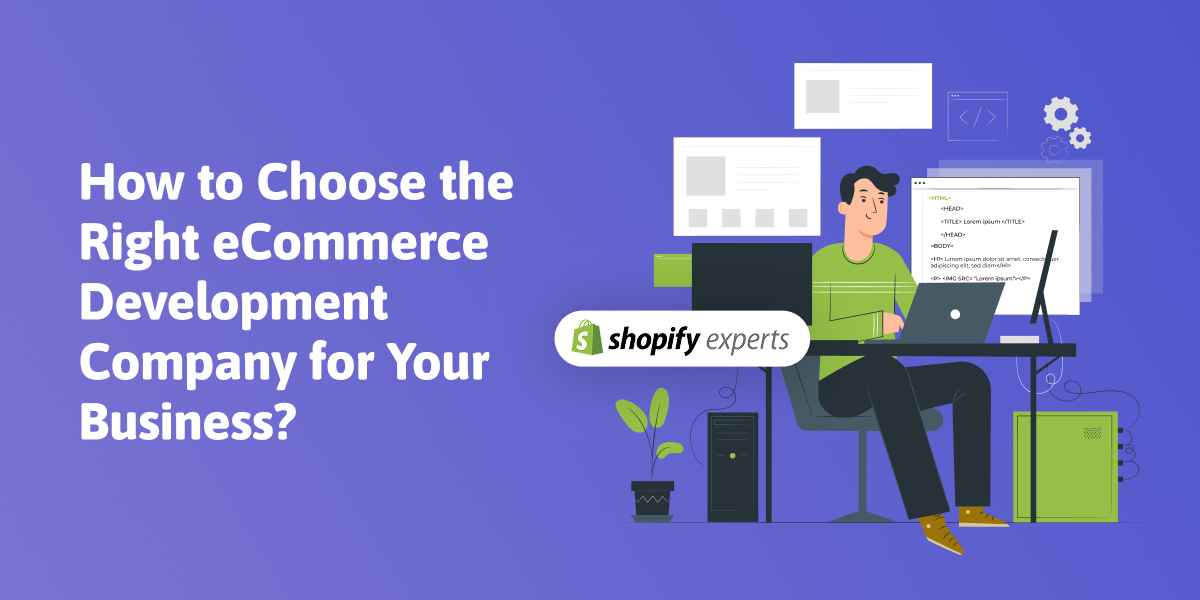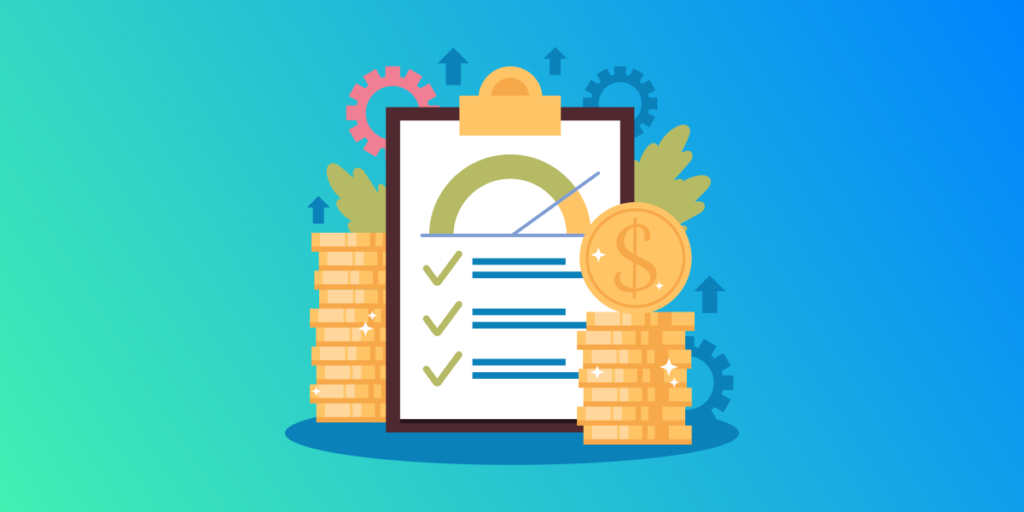How to Choose the Right eCommerce Development Company for Your Business

Picking the right ecommerce development company can feel like a big deal. It's not just about getting a website; it's about building a digital storefront that works for your business. You want a team that gets what you need and can actually build it. This guide will help you figure out what to look for so you can pick an ecommerce development company that's a good fit for you.
Key Takeaways
- Know what your business needs before you even start looking for an ecommerce development company.
- Check out what an ecommerce development company has done before and if they know your type of business.
- Understand how an ecommerce development company runs their projects and how they'll talk to you.
- Get a clear idea of all the costs involved with an ecommerce development company, no surprises.
- Make sure the ecommerce development company will stick around to help after your site goes live.
Understanding Your Business Needs Before Engaging an eCommerce Development Company
Before you even think about talking to an eCommerce development company, you need to do some serious soul-searching about your business. It's like trying to build a house without knowing how many rooms you need – you'll end up with something that doesn't quite work. This stage is all about getting crystal clear on what you want to achieve with your online store.
Defining Your Target Audience and Market Position
Before you even think about talking to an eCommerce development company, you need to do some serious soul-searching about your business. It's like trying to build a house without knowing how many rooms you need – you'll end up with something that doesn't quite work. This stage is all about getting crystal clear on what you want to achieve with your online store.
Defining Your Target Audience and Market Position
Who are you trying to sell to? Seriously, who? Don't just say "everyone." Get specific. Age, location, income, interests – the more you know, the better. Understanding your target audience is the first step in building an eCommerce platform that speaks directly to them. Think about where your ideal customer hangs out online. What are their pain points? What are they looking for in a product or service like yours? Once you have a good handle on your audience, you can start thinking about your market position. Are you the budget-friendly option? The luxury brand? The eco-conscious choice? Defining your niche will help you stand out from the competition.
Assessing Your Current Technology Stack and Infrastructure
Take a good, hard look at what you're already working with. Do you have an existing website? What platform is it on? What about your inventory management system, your accounting software, your CRM? How well do these systems play together? If you're starting from scratch, that's one thing. But if you're trying to integrate a new eCommerce platform with existing systems, you need to understand the potential challenges. Think about things like data migration, API integrations, and compatibility issues. It might be worth getting a tech consultant to partner with a Shopify Experts agency to assess your current setup and identify any potential roadblocks.
Identifying Key Features and Functionalities for Your Platform
What do you need your eCommerce platform to do? Not just what would be nice to have, but what is absolutely essential for your business? Think about things like:
- Product catalog management
- Shopping cart and checkout process
- Payment gateway integration
- Shipping options
- Customer account management
Then, think about any unique features that you might need. Do you need a subscription service? A loyalty program? A custom product configurator? Make a list of all the features and functionalities that are important to you, and prioritize them. This will help you communicate your needs clearly to potential development companies. It's also a good idea to think about the future. Will you need to scale your platform as your business grows? Will you need to add new features down the road? Planning for the future will save you headaches (and money) in the long run.
It's easy to get caught up in the excitement of building a new eCommerce platform, but taking the time to understand your business needs upfront will pay off in the long run. By defining your target audience, assessing your technology stack, and identifying key features, you'll be well-positioned to choose the right development company and build a platform that meets your specific needs."
Evaluating the Expertise of an eCommerce Development Company

Okay, so you're trying to figure out if an ecommerce expert is actually, well, an expert. Makes sense. You don't want to hand over your business to someone who's just going to mess things up. Here's how to tell if they know their stuff.
Reviewing Their Portfolio and Case Studies
First things first, look at their work. A solid portfolio is a must. It's like checking out an artist's gallery before commissioning a painting. See if their past projects are similar to what you need. Do they have experience with businesses like yours? Case studies are even better because they show the results they've achieved for other clients. Did they increase sales? Improve conversion rates? Solve specific problems? If they can't show you tangible results, that's a red flag.
Checking for Industry-Specific Experience
Not all ecommerce seo expert are created equal. Some specialize in certain industries. If you're selling clothing, you want a company that knows the ins and outs of the fashion industry. If you're selling electronics, you need someone who understands that market. Industry-specific experience can make a huge difference. They'll already be familiar with the challenges and opportunities in your niche. They'll know what works and what doesn't.
Assessing Their Technical Proficiency and Platform Knowledge
Do they know the platforms you're interested in? Shopify? Magento? WooCommerce? Make sure they're fluent in the technology you need. Ask them about their experience with different programming languages, databases, and APIs. Don't be afraid to get technical. If they can't explain things clearly, that's a problem. You want a company that's up-to-date with the latest trends and technologies. You might even hire ecommerce expert to assess their technical skills.
It's important to remember that technical skills aren't everything. You also need a company that understands business. They need to be able to translate your business goals into technical solutions. They need to be able to think strategically and help you grow your business. Don't just focus on the code; focus on the results."
Here's a quick checklist:
- Do they have a strong portfolio?
- Do they have relevant case studies?
- Do they have industry-specific experience?
- Are they proficient in the platforms you need?
- Can they explain technical concepts clearly?
If you can answer yes to all of these questions, you're probably on the right track. If you're looking for 99 Ecommerce experts, make sure to do your due diligence.
Considering the Development Process of an eCommerce Development Company

It's not just about the end product; how an ecommerce website development company gets there matters a lot. You need to understand their process to avoid headaches down the line. Think of it like building a house – you want to know if they're using blueprints or just winging it.
Understanding Their Project Management Methodology
Knowing how they manage projects is key. Do they use Agile, Waterfall, or some hybrid? Ask for a detailed explanation of their process, from initial planning to final delivery. See if they have a system for tracking progress, managing tasks, and handling changes. A good project management methodology can save you time and money. It's also important to know who will be your main point of contact and how often you can expect updates. This helps ensure that the ecommerce app development company is on track and that you're always in the loop.
Clarifying Communication Channels and Reporting
Communication is everything. How will they keep you informed? Will it be through weekly calls, email updates, or a project management tool? Make sure you're comfortable with their communication style and frequency. Ask for sample reports to see how they track progress and identify potential issues. A clear communication plan can prevent misunderstandings and keep the project moving forward smoothly. It's also a good idea to establish escalation procedures in case problems arise.
Inquiring About Quality Assurance and Testing Procedures
What steps do they take to ensure the quality of their work? Do they have a dedicated QA team? What types of testing do they perform (e.g., unit testing, integration testing, user acceptance testing)? Ask for details about their testing process and how they handle bug fixes. A robust QA process is essential for delivering a reliable and bug-free ecommerce web development services. Don't forget to ask about their approach to Ecommerce Migration Services and how they ensure data integrity during the process.
It's important to remember that the development process is a collaborative effort. You need to be actively involved and provide timely feedback to ensure that the final product meets your expectations. Don't be afraid to ask questions and challenge assumptions. The more engaged you are, the better the outcome will be."
Here's a simple example of a testing checklist:
- Functionality Testing
- Usability Testing
- Performance Testing
- Security Testing
- Compatibility Testing
Analyzing the Cost Structure of an eCommerce Development Company

Figuring out how much an eCommerce development company will charge is a big deal. It's not just about the initial price tag; you need to understand what you're paying for and if there are any surprises down the road. Let's break down what to look for.
Comparing Pricing Models and Inclusions
Different companies use different ways to charge for their services. Some might offer a fixed price for the entire project, which can be great for budgeting. Others might charge by the hour, which can be flexible but also unpredictable. Then there are value-based pricing models, where the cost is tied to the results they achieve for you. Make sure you know exactly what's included in the price.
Consider these points:
- What features are covered in the base price?
- Are there extra costs for design revisions?
- Does the price include testing and quality assurance?
Understanding Potential Hidden Fees
This is where things can get tricky. Sometimes, the initial quote doesn't include everything. You might find out later that you need to pay extra for things like website hosting, security certificates, or even certain plugins. Always ask for a detailed breakdown of all potential costs.
It's important to ask about costs for things like third-party integrations, data migration, and ongoing support. These can add up quickly and significantly impact your budget."
Requesting Detailed Project Proposals
A detailed project proposal is your best friend. It should outline everything the company plans to do, how long it will take, and how much it will cost. Don't be afraid to ask questions and get clarification on anything you don't understand. The more information you have upfront, the better prepared you'll be.
Here's what a good proposal should include:
- A clear scope of work.
- A timeline with milestones.
- A detailed cost breakdown.
Here's an example of a cost breakdown table:
| Item | Estimated Cost | Notes |
| Design | $800 | Includes 3 design revisions |
| Development | $3,000 | Covers all core features |
| Testing | $600 | Includes user acceptance testing |
| Project Management | $500 | Covers weekly progress reports |
| Third-Party Integrations | $1,000 | Payment gateway and shipping integration |
| Total | $5,900 |
Assessing Post-Launch Support from an eCommerce Development Company
So, you've launched your online store. Congrats! But the journey doesn't end there. What happens after the site goes live is just as, if not more, important than the initial development. A good eCommerce development company will provide solid post-launch support to keep your store running smoothly and help it grow. Let's look at what to consider when assessing this aspect.
Inquiring About Maintenance and Updates
Think of your eCommerce site like a car. It needs regular maintenance to perform well. Software updates, security patches, and general upkeep are all part of this. Find out what kind of maintenance plan the company offers. Do they proactively monitor your site for issues? How quickly do they respond to problems? What's included in their maintenance packages? Don't assume anything; get the specifics. Regular updates are important for eCommerce development.
Understanding Their Technical Support Availability
Stuff happens. Servers go down, plugins conflict, customers report weird errors. When these things occur, you need reliable technical support. What are their support hours? Do they offer 24/7 support, or is it limited to business hours? What's the average response time? How can you contact them – phone, email, or a ticketing system? A company that's hard to reach when you have a problem can cause major headaches and lost sales. Availability is key here.
Discussing Scalability and Future Enhancements
Hopefully, your business will grow! Your eCommerce platform needs to be able to handle increased traffic, more products, and new features. Talk to the development company about scalability. Can the platform easily handle a surge in orders during the holiday season? How easy is it to add new features or integrations down the road? A platform that's difficult to scale can become a bottleneck as your business expands. Plan for the future.
It's easy to get caught up in the excitement of launching your store, but don't neglect post-launch support. A solid support system can save you time, money, and stress in the long run. Choose a company that's committed to being there for you after the sale."
Checking References and Reputation of an eCommerce Development Company

It's easy to get caught up in flashy presentations and promises, but before you sign on the dotted line, you absolutely need to do your homework. Don't just take the company's word for it – dig a little deeper and see what others are saying. This part is all about verifying that the company is as good as they claim to be. It's like checking the reviews before you buy something online; you want to make sure you're not getting scammed.
Contacting Previous Clients for Feedback
This is probably the most important step. Get a list of past clients from the development company and actually reach out to them. Don't just look at the names; send an email or, even better, give them a call. Ask about their experience working with the company. Were they happy with the communication? Did the project stay on schedule and within budget? Were there any unexpected issues? Honest feedback from previous clients can give you a realistic picture of what to expect.
Here are some questions you might want to ask:
- How responsive was the team to your questions and concerns?
- Did they deliver the project on time and within budget?
- Were there any hidden costs or surprises during the development process?
- Would you recommend them for a similar project?
Reviewing Online Testimonials and Ratings
Online reviews can be a mixed bag, but they can still provide valuable insights. Check out sites like Google Reviews, Clutch, and even social media to see what people are saying about the company. Look for patterns in the reviews. Are there recurring complaints about communication or project management? Are there consistent praises for their technical skills or customer service? Take everything with a grain of salt, but pay attention to the overall trend. It's also worth checking out their profiles on professional networking sites like LinkedIn to see what their employees and partners are saying.
Investigating Their Industry Standing and Awards
Has the company won any awards or received recognition in the eCommerce industry? This can be a good indicator of their expertise and reputation. Look for mentions in industry publications or participation in relevant conferences and events. A company that's actively involved in the eCommerce community is more likely to be up-to-date on the latest trends and technologies. Plus, it shows they're committed to their craft. You can also check if they are members of any relevant industry associations. This can give you an idea of their commitment to professional standards. For example, if you're looking for eCommerce web development and design services, see if they have any certifications or partnerships with major eCommerce platforms.
Don't be afraid to ask tough questions. A reputable company will be transparent and willing to provide you with the information you need to make an informed decision. If they're hesitant to share references or seem evasive, that's a red flag."
Conclusion
So, picking the right company for your online store might seem like a big deal, but it doesn't have to be super stressful. Just take your time and look at what each one brings to the table. Think about what your business really needs and if they can actually help you get there. It's kind of like finding the right puzzle piece – when it fits, everything just works better. A good choice here can really make a difference for your business down the road.
Frequently Asked Questions
How do I figure out what my business needs before talking to a development company?
Think about what your business really needs. Who are you trying to sell to? What do you already have in terms of computer systems? What special things do you want your online store to do?
What should I look for to know if a company is good at what they do?
Look at their past work, especially if they've built stores for businesses like yours. See if they know a lot about the technology and platforms used for online shopping.
How can I understand how they will build my online store?
Ask them how they manage projects, how often they'll talk to you, and how they make sure the website works correctly before it goes live.
How do I understand the cost of building an e-commerce website?
Get clear quotes that show all costs. Ask about any extra fees that might pop up. Compare different companies' prices to see what's included.
What kind of help should I expect after my website is finished?
Find out if they offer help after your store is built, like fixing problems or making updates. Ask if they can help your store grow as your business grows.
How can I check if a company is trustworthy and has a good reputation?
Ask them for names of other businesses they've worked with so you can call them and ask about their experience. Also, check online reviews and see if they've won any awards.

